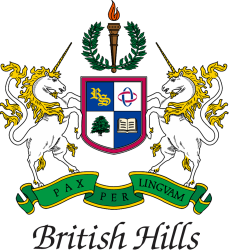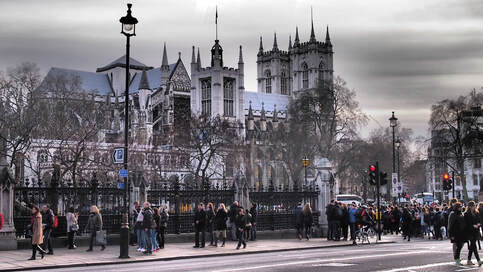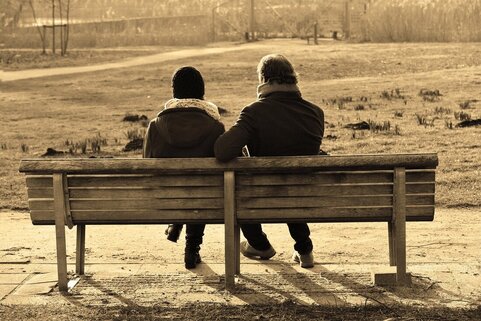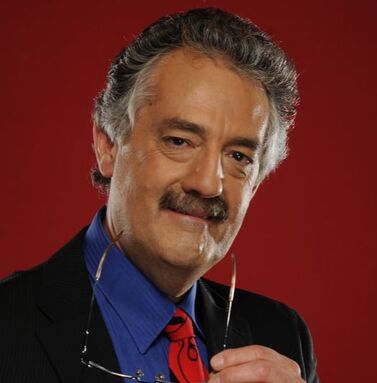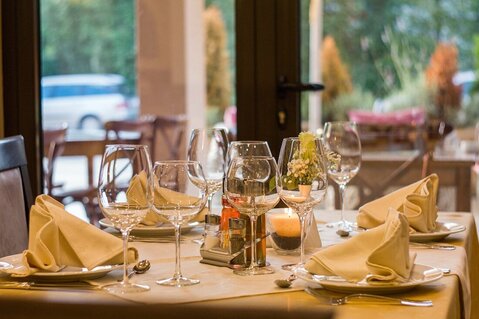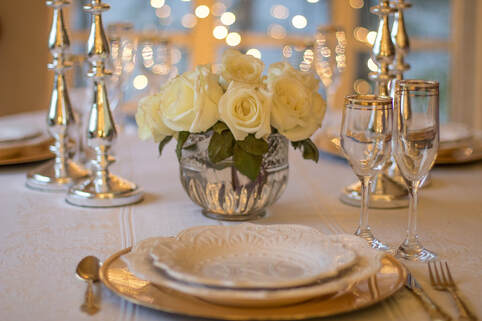A guide to public behaviour in the UK
How should you behave when you visit the United Kingdom? How do manners differ between the UK and Japan? In this section, learn some of the key points to remember about British customs, manners, and etiquette.
Table Manners:
|
Table manners differ across nations, and the UK has several simple manners you should keep in mind.
1. Wait for everyone It is considered impolite to begin eating a meal before everyone is sitting down and ready to eat. If food is being served to you, you should not begin eating until everyone has received their food. Again, when you have finished eating you need to wait for everyone to finish. It is considered rude to leave the table while someone is still eating. Instead, just relax and make conversation. 2. Eat quietly, with mouth closed It is considered very impolite to make noise when eating. This includes noodles - though slurping noodles in Japan is acceptable (and even recommended), you should not slurp noodles in the UK. Also, it is very bad manners to talk with food in your mouth. Always be sure to swallow before speaking! 3. Use a knife and fork It is common to use a knife and fork even for food you can easily pick up with your hands. This depends on the formality of the meal - it may be fine to pick up chips with your hands, but see what everybody else does first! QueuingQueueing is often mentioned as a key point of British etiquette. For Japanese visitors to the UK, this is not usually a problem as queueing is also a common custom in Japan. Simply be careful not to be seen to "push in," and you will have no problems.
Of course, a Japanese visitor to the UK may find that, in fact, the British do NOT queue as much as in Japan. Notably, queues do not generally form at train stations before boarding the train. Instead, people spread out across the platform. Nevertheless, queueing maintains a place of importance in both cultures. |
Speaking and ConversationsThe British are often said to have a specific style of speech and discussion. Indeed, they often take pride in this style! Here a few things to remember:
1. Apologising In British culture, apologising is considered polite even for a small inconvenience. You may even find people apologising when they are the victim of someone else's mistake! It is important to remember that you should acknowledge when someone apologises to you. A simple "don't worry about it," or "it's no problem" is an easy way to demonstrate good manners when someone apologises to you. 2. Taboo topics It is considered impolite to discuss topics such as money, salaries, age, and body size and shape in British culture. Sex and discussion of sexual activity should also be avoided. Furthermore, it is best to avoid discussion of politics unless you are very comfortable with the person you are speaking with. Instead, a very British custom is to discuss the weather! This is a great ice-breaker, and is often the first thing spoken about even between family members or close friends. 3. Please and Thank You The British tend to use "please" and "thank you" far more frequently than, for example, Americans. Anytime you ask someone for help or information, no matter how small, it is best to use both words. When you become close to those you are speaking with, they may tell you not to worry about thanking them - however, it is still good manners to do so! Names and Forms of AddressIt is common in Britain to address people by their first name. This is true for both business and personal acquaintances. However, it is important to remember that there are exceptions.
One exception for this is in the customer service industry. For those working in customer service, where they are speaking to a client, the usual form of address is "Mr." or "Ms." and the person's surname. A second exception is for teachers or doctors, when you are the student or patient. Again, these people will usually be addressed by their surname. The best way to know how to address someone is to simply see how they introduce themselves. If someone introduces themselves with only their first name, it is expected that you will use this form from now on - regardless of the formality of the setting. However, should someone introduce themselves with both their first name and surname, it is best to address them with the title "Mr." or "Ms." until they tell you otherwise. Of course, some people possess formal titles such as "professor," "doctor," or even "sir." It is polite to use these titles, unless the holder of such a title explicitly states that they do not need to be used. Finally, people of an older generation are more likely to expect to be addressed by their surnames. Essentially, the use of a title and surname still confers a sense of respect that is both useful in establishing rapport and building relationships. When in doubt, use the more formal form of address. Or simply ask "What name should I call you by?" |
